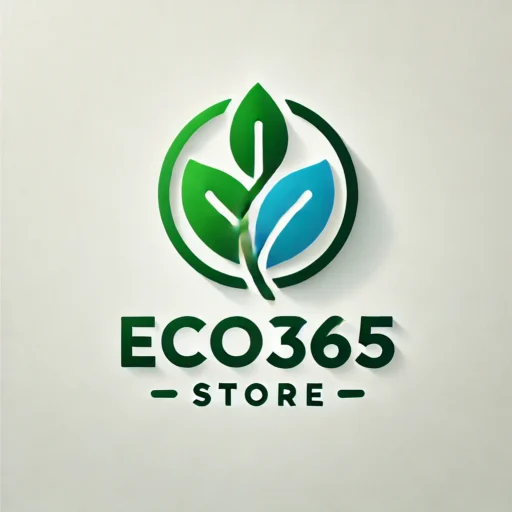In recent years, Kangen Water has gained popularity as a supposed health-boosting alternative to regular water. But what is Kangen Water, and why are so many people talking about it? Marketed as alkaline, ionized water, Kangen Water is believed to offer numerous health benefits, from improved hydration to antioxidant properties. Advocates claim it can enhance wellness, detoxify the body, and even slow aging.
But is Kangen Water good for you, or is it just another health fad? In this article, we’ll explore the science behind Kangen Water, its potential benefits, and whether it truly lives up to the hype. Keep reading to find out if this alkaline water is worth the investment!

What Is Kangen Water?
Definition and Origin
Kangen Water is alkaline ionized water produced by a water filtration and ionization system developed by Enagic, a Japanese company founded in 1974. The word “Kangen” means “return to origin” in Japanese, symbolizing water that is purified and restored to a healthier, natural state.
The Enagic company introduced Kangen Water machines, which use electrolysis to transform regular tap water into ionized alkaline water. This water is marketed for its potential health benefits, including improved hydration, antioxidant properties, and better absorption in the body.
How Kangen Water Is Made?
Kangen Water is created using a process called electrolysis, which separates water into different pH levels. Here’s how it works:
- Filtration: The machine first filters tap water, removing impurities, chlorine, and harmful contaminants.
- Electrolysis: The purified water then passes through titanium-coated platinum plates, which ionize the water molecules by electrically charging them.
- Separation: The process splits water into alkaline (high pH) and acidic (low pH) streams, creating different types of Kangen Water.
The result is alkaline, hydrogen-rich water, which is believed to have antioxidant and hydrating benefits.
pH Levels and Types of Kangen Water
Kangen Water machines produce multiple pH levels, each serving different purposes:
- Strong Alkaline Water (pH 11.0+) – Used for cleaning and removing pesticides from produce.
- Drinking Kangen Water (pH 8.5 – 9.5) – The primary drinking water, claimed to neutralize acidity and improve hydration.
- Neutral Water (pH 7.0) – Regular filtered water, suitable for medications and baby formula.
- Beauty Water (pH 4.0 – 6.0) – Used for skin care, as it helps tighten pores and improve hair health.
- Strong Acidic Water (pH 2.5) – Known for disinfecting surfaces and killing bacteria.
These different pH levels are promoted for various household and personal care uses, beyond just hydration.
But does Kangen Water truly live up to the hype? Is Kangen Water good for you, or is it just another wellness trend? Let’s explore the potential benefits and scientific perspective.
Potential Health Benefits of Kangen Water
Alkalinity and pH Balance in the Body
One of the main claims about Kangen Water is its ability to neutralize acidity in the body. The idea is that modern diets—rich in processed foods, sugar, and caffeine—contribute to an acidic environment, which could lead to inflammation and other health concerns.
- Alkaline water (pH 8.5 – 9.5) is believed to help balance the body’s pH levels.
- Supporters claim that drinking alkaline water can counteract high-acid diets and reduce acid buildup.
- However, the human body naturally regulates pH through the kidneys and lungs, making it unclear whether drinking alkaline water alone has a significant impact.
Antioxidant Properties & ORP (Oxidation Reduction Potential)
Kangen Water is said to have a negative ORP (Oxidation Reduction Potential), meaning it may act as an antioxidant to help fight free radicals—unstable molecules that contribute to aging and disease.
- Negative ORP values indicate potential antioxidant effects, helping to neutralize oxidative stress in the body.
- Hydrogen-rich Kangen Water is believed to have anti-aging and cell-protecting benefits.
- While some studies suggest hydrogen-infused water may support cellular health, more scientific research is needed to confirm the long-term effects.
Improved Hydration & Detoxification
Another promoted benefit of Kangen Water is its ability to hydrate the body more effectively than regular water due to its micro-clustered molecules.
- It is believed that smaller water molecules improve absorption at a cellular level, leading to better hydration.
- Increased hydration may aid in flushing out toxins and supporting kidney function.
- While proper hydration is crucial for health, whether Kangen Water’s structure enhances absorption more than regular water is still debated.
Potential Benefits for Digestion & Acid Reflux
People suffering from acid reflux (GERD), bloating, and gut issues often turn to alkaline water as a natural remedy.
- A 2012 study suggested that alkaline water (pH 8.8) may help neutralize pepsin, an enzyme linked to acid reflux.
- Drinking Kangen Water could potentially reduce acidity in the stomach, easing symptoms of heartburn.
- While alkaline water may provide temporary relief, long-term digestive health is more dependent on dietary choices and gut microbiome balance.
Athletic Performance & Muscle Recovery
Many athletes and fitness enthusiasts drink alkaline water to reduce lactic acid buildup and enhance recovery post-workout.
- Intense exercise increases lactic acid production, leading to muscle soreness.
- Some believe that alkaline water helps buffer acid buildup, reducing fatigue and improving endurance.
- While proper hydration is key for performance, more research is needed to confirm whether alkaline water provides added recovery benefits beyond normal hydration.
While Kangen Water offers potential benefits such as better hydration, antioxidant properties, and acid reflux relief, its overall effectiveness compared to regular filtered water remains a topic of scientific debate. Next, we’ll explore potential risks and considerations to help determine if Kangen Water is truly worth the investment.

Potential Risks & Side Effects of Kangen Water
Disrupting Natural Stomach Acid Levels
One of the biggest concerns with excessive alkaline water consumption is its potential impact on stomach acid levels and digestion.
- The stomach maintains an acidic environment (pH 1.5 – 3.5) to properly break down food and absorb nutrients.
- Drinking high-pH water regularly may reduce stomach acid, leading to poor digestion, bloating, and nutrient malabsorption.
- A weakened stomach acid barrier could also make the body more susceptible to harmful bacteria and infections.
While drinking moderate amounts of Kangen Water is unlikely to cause harm, excessive use may interfere with normal digestive function.
Electrolyte Imbalance & Over-Alkalinity Risks
Drinking too much alkaline water can lead to a condition called alkalosis, where the body’s pH becomes too high, disrupting normal physiological functions.
- Symptoms of alkalosis include nausea, muscle twitching, hand tremors, and confusion.
- Over-alkalinity may cause an imbalance in essential electrolytes, particularly calcium, potassium, and magnesium.
- Long-term alkalosis has been linked to kidney issues and metabolic disturbances.
For most people, the body naturally regulates pH balance through the kidneys and respiration, making excessive alkaline water consumption unnecessary.
Cost vs. Effectiveness: Is It Worth the Price?
One of the biggest criticisms of Kangen Water is its high cost compared to its actual benefits.
- Kangen Water machines (sold by Enagic) cost anywhere from $2,000 to $5,000, making them a significant investment.
- Standard water filters (such as reverse osmosis or activated carbon systems) offer high-quality purification for a fraction of the price.
- Many experts argue that drinking clean, filtered water is sufficient for health, without the need for ionization or pH alteration.
For those considering investing in Kangen Water, it’s essential to compare scientific evidence, cost-effectiveness, and real benefits before making a decision.
While Kangen Water is safe in moderation, excessive consumption may lead to digestive issues, electrolyte imbalances, and unnecessary expenses. Before switching to alkaline ionized water, it’s important to consider whether the benefits truly outweigh the risks and costs.
Kangen Water vs. Other Alkaline Water Brands
Kangen Water vs. Regular Alkaline Water
Both Kangen Water and regular alkaline water have higher pH levels, but the way they are produced differs significantly.
| Feature | Kangen Water | Regular Alkaline Water |
| Production Method | Ionization (electrolysis) | Mineral infusion or chemical alkalization |
| pH Levels | Adjustable (8.5 – 9.5) | Typically 8.0 – 9.5 |
| Antioxidant Properties (ORP) | High (negative ORP) | Varies, often lower |
| Hydrogen Content | Contains molecular hydrogen (antioxidant) | May lack hydrogen benefits |
| Cost | Expensive (requires Enagic machine) | More affordable, available in bottles |
While Kangen Water offers ionization and hydrogen benefits, some regular alkaline waters use synthetic processes to raise pH, which may not offer the same antioxidant potential.
Kangen Water vs. Natural Spring Water
Natural spring water is one of the purest and most sought-after water types, containing naturally occurring minerals and a balanced pH. How does it compare to Kangen Water?
| Feature | Kangen Water | Natural Spring Water |
| Production | Artificially ionized | Naturally alkaline from underground sources |
| Mineral Content | Variable, filtered before ionization | Rich in naturally occurring minerals |
| Hydration Effectiveness | Claimed to be better due to micro-clustered molecules | Naturally hydrating, contains electrolytes |
| Taste | Can vary based on machine settings | Smooth, natural taste |
| Cost | High (requires machine) | Affordable (available bottled or from source) |
Natural spring water is a great hydration source due to its natural mineral content and electrolyte balance, while Kangen Water offers the additional benefit of ionization and negative ORP.
Kangen Water vs. Reverse Osmosis Water
Reverse osmosis (RO) water is one of the most common water purification methods, removing up to 99% of contaminants. How does it compare to Kangen Water?
| Feature | Kangen Water | Reverse Osmosis (RO) Water |
| Filtration Method | Electrolysis + basic filtration | Multi-stage filtration (removes almost all impurities) |
| Mineral Content | Some machines reintroduce minerals | Removes most minerals, may require remineralization |
| pH Level | Alkaline (8.5 – 9.5) | Acidic to neutral (5.5 – 7.0) |
| Health Benefits | Claimed to provide antioxidants and better hydration | Pure but lacks added benefits |
| Cost | High (Enagic machines are expensive) | More affordable long-term |
While reverse osmosis water provides high-purity drinking water, it often removes beneficial minerals as well, making remineralization necessary. Kangen Water, on the other hand, ionizes and alkalizes water, but at a significantly higher price.
Which Water Type Is Best?
The best water choice depends on personal preferences and health goals:
- For natural hydration and minerals → Spring Water is an excellent choice.
- For pure, contaminant-free water → Reverse Osmosis Water is best.
- For antioxidant benefits and negative ORP → Kangen Water may be beneficial, but expensive.
- For convenience and affordability → Regular Alkaline Bottled Water works as an alternative.
Before investing in Kangen Water, it’s important to compare scientific evidence, personal needs, and cost-effectiveness to determine if it’s truly the best option for you.
Who Should and Shouldn’t Drink Kangen Water?
Best Users: Who Can Benefit the Most?
Certain groups of people may find Kangen Water beneficial, particularly those looking for alkaline hydration, digestive relief, or athletic performance benefits.
✅ Athletes and Active Individuals
- May help reduce lactic acid buildup, improving muscle recovery and endurance.
- Enhanced hydration properties could support overall performance.
✅ People with Acid Reflux (GERD)
- Studies suggest that alkaline water (pH 8.8+) may help neutralize stomach acid and provide relief from acid reflux symptoms.
✅ Those Seeking Antioxidant-Rich Water
- Kangen Water is hydrogen-rich, with a negative ORP (Oxidation Reduction Potential) that may help reduce oxidative stress.
✅ Individuals Who Consume High-Acid Diets
- If someone consumes processed foods, alcohol, caffeine, and sugar, alkaline water may help counteract acidity in the body.
Who Should Avoid Kangen Water?
While Kangen Water may offer benefits for some, others should be cautious, especially those with health conditions that require pH balance regulation.
❌ People with Kidney Disease or Kidney Stones
- High alkalinity may stress the kidneys, making it difficult for those with kidney disease to process minerals properly.
- Those prone to calcium-based kidney stones should avoid excessive alkaline water intake.
❌ Individuals Prone to Electrolyte Imbalances
- Drinking only high-pH water can disrupt natural electrolyte levels, leading to fatigue, muscle cramps, and confusion.
- The body naturally regulates pH through kidneys and respiration, and excessive alkalinity may cause metabolic imbalances.
❌ People on Medications That Require Stomach Acidity
- Certain medications, including antibiotics and acid-dependent drugs, require a balanced stomach pH for proper absorption.
- Consistently drinking alkaline water may reduce the effectiveness of some medications.
❌ Those Who Rely on Cost-Effective Water Solutions
- Kangen Water machines are expensive ($2,000–$5,000), making traditional water filtration systems a more affordable alternative.
Conclusion: Is Kangen Water Good for You?
Kangen Water offers potential benefits, including better hydration, antioxidant properties, and possible relief for acid reflux, making it appealing for athletes, health-conscious individuals, and those looking for an alternative to regular water. However, the high cost, potential risks like disrupting stomach acidity and electrolyte imbalances, and lack of strong scientific backing make it a controversial choice. While some swear by its health benefits, others see it as an overpriced wellness trend. Final verdict? Kangen Water may be beneficial for some but isn’t a necessity for optimal health. Have you tried Kangen Water? Share your experience in the comments!
Can you boil Kangen Water?
Yes, you can boil Kangen Water, but doing so may reduce some of its claimed benefits. When boiled, the antioxidant properties and molecular hydrogen that contribute to its negative ORP (Oxidation Reduction Potential) may be lost. However, the alkalinity (pH level) will remain relatively stable unless boiled for an extended period.
What does Kangen Water do to your body?
Kangen Water is believed to improve hydration, provide antioxidants, and help balance pH levels in the body. Supporters claim it can neutralize acidity, aid digestion, and enhance detoxification. However, scientific research on its long-term health benefits is still limited, and the body naturally regulates pH without the need for alkaline water.
Is Kangen Water positive or negative?
Kangen Water has a negative ORP (Oxidation Reduction Potential), meaning it is considered an antioxidant that may help reduce oxidative stress and free radical damage in the body. The more negative the ORP value, the stronger the antioxidant potential. This is one of the main reasons why some believe Kangen Water provides health benefits.
What is the best pH for drinking water?
The best pH for drinking water is typically between 6.5 and 8.5, as recommended by the Environmental Protection Agency (EPA). Water within this range is neutral to slightly alkaline, ensuring safe consumption without disrupting the body’s natural balance. While alkaline water (8.5 – 9.5 pH) is marketed for health benefits, the body regulates its pH efficiently without requiring high-pH water.
Is rainwater safe to drink?
Rainwater is not automatically safe to drink because it can contain pollutants, bacteria, and contaminants from the atmosphere. In heavily industrialized areas, rainwater may absorb chemicals, heavy metals, and pathogens. However, if properly filtered, boiled, or treated, rainwater can be made safe for consumption, and in some regions, it serves as a primary water source.

Anamika is a passionate writer for Eco365Store.com, specializing in topics that inspire a cleaner, greener world. With expertise in home cleaning, recycling, and eco-friendly solutions, she crafts engaging and informative articles that help readers adopt sustainable practices in their daily lives.

